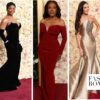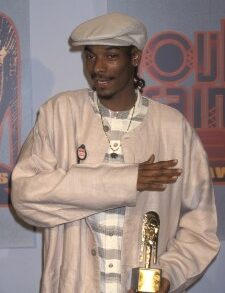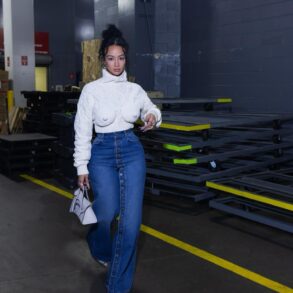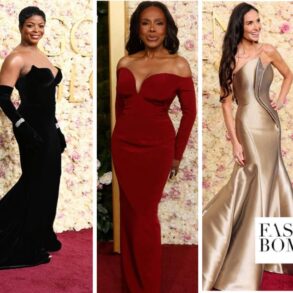

How Chinese Streetwear Has Risen Alongside Chinese Hip Hop
As genuine stars like Jackson Wang and Masiwei have emerged, they’ve also launched their own — very popular — clothing lines
1
0
In the summer of 2020, Hong Kong-born singer and rapper Jackson Wang announced the launch of his streetwear brand, Team Wang, with an Instagram post. Featuring everything from athleisure wear to accessories, the debut collection, “The Original 1,” was united by a minimalist black-and-white design aesthetic and quickly became an internet sensation. The Team Wang logo was prominently displayed on all merchandise, creating a buzz among Wang’s millions of fans, who eagerly dreamed of owning a piece. However, upon release, the items sold out immediately; high demand made it nearly impossible to get anything.
When Dayuan Wang, a Shanghai hip hop fan who works in real estate, finally received his first piece from Team Wang in 2023 — a black silk shirt dotted with Team Wang logos — he was immersed in euphoric bliss. The item had sold out on Taobao as soon as it was released. On WeChat, he spotted someone selling it in a group chat for Shanghai-based Chinese hip hop lovers. He quickly added the seller and transferred the money to secure the shirt.
“Jackson Wang is so cool. Wearing his brand means you have good taste in fashion. This is not an average streetwear brand,” the 29-year-old said with pride.
Nowadays, being an artist is simply not enough. In an age where celebrities dominate both pop culture and fashion through their own brands, Chinese rappers are getting in on the action. As Chinese hip hop (also sometimes known as C-rap) has emerged as a global phenomenon, Chinese hip hop artists have joined the lineup by launching streetwear brands. Fans have shifted their allegiances from established streetwear names like Stüssy or Supreme to supporting Chinese rapper-owned brands like Team Wang, CLOT, and AFGK.
Rap music, born in the Bronx, New York City during the 1970s, seemed an unlikely fit for Chinese culture at first. In the early 2000s, hip hop began to make its mark on the Chinese mainland, whether through poppy artists from Hong Kong or Taiwan, like MC HotDog, or subversive, more underground acts like Beijing’s IN3 (阴三儿). But there was a lack of genuine homegrown artists with chart appeal. Things began to shift about half a decade ago, when new artists like Chengdu’s Higher Brothers, known for their anthem “Made in China,” began to emerge.
Nevertheless, Chinese rap was an elusive, underground genre with a niche fan base until the debut of The Rap of China, a rap competition show created by iQiyi, in 2017. The show went viral after one of the judges, Kris Wu (now disgraced and convicted of rape) asked contestants, “Do you have freestyle?” This phrase soon became a meme, entertaining a young audience and drawing attention to Chinese hip hop performances.
Since then, the show has become a cultural phenomenon, catapulting the genre to the spotlight. The show’s premiere episode in 2017 attracted more than 100 million views within the first four hours of release, and the first season reportedly amassed over 2.5 billion views in total.
The show’s mass success turned contestants like PG One, Tizzy T, Gai, and Lexie Liu into big names, crossing over into the pop mainstream. In 2017, right after Jackson Wang released his single “Papillon,” he collaborated with Gai on stage as part of the contest. That was when Jackson first grabbed Dayuan’s attention.
“I tuned in to the show every week. I didn’t know about Chinese hip hop as a genre before the show came out,” Dayuan explained.
With momentum building around The Rap of China, Asian artists also found themselves a foothold in the Western music industry, thanks in part to the advocacy of labels like 88rising. Established in 2015, with over 7 million monthly listeners on Spotify, 88rising has propelled Asian and Asian American artists like NIKI, Joji, and Rich Brian into the global spotlight. Since 2018, 88rising has also organized the Head in the Clouds music festival, an Asian version of Coachella that features Asian musical talents.
In 2016, a year before the surge in popularity of Chinese hip hop sparked by The Rap of China, Higher Brothers joined 88rising. Their track “Made in China” became a viral sensation, later remixed by DJ Snake and played at music festivals around the world. Following Higher Brothers, more Chinese artists, including Jackson Wang, Lexie Liu, and Xin Liu, have joined the label.
Despite this progress, hip hop fashion and streetwear culture have yet to go completely mainstream in China. However, the Chinese hip hop is definitely growing both at home and abroad. And as Chinese rappers’ music gains recognition, so do their wardrobes.
Many Chinese streetwear brands showcase an intriguing cross-cultural identity. On the one hand, Chinese rappers represent a sense of unconventionality and rebellion, breaking with tradition to inspire Chinese youth. At the same time, their streetwear lines often integrate Chinese and Asian elements in their designs — think dragons, or traditional Chinese clothing — to set themselves apart from Western streetwear. This offers a taste of guochao (also known as China chic), a wider fashion trend emphasizing Chinese culture and aesthetics.
“Guochao is getting more popular in recent years. I love my Team Wang shirt because of the new school Chinese elements in the design, and buying Team Wang is supporting guochao,” Dayuan said.
Jackson Wang is not the first Chinese hip-hop artist to have channeled his creativity through a clothing line. Back in 2003, Edison Chen founded the aforementioned CLOT (Cheating Lots of Teenagers), a pioneering streetwear brand aiming at bridging the gap between Eastern and Western cultures. Over the years, its high-profile collaborations with iconic labels such as Nike, Converse, and A Bathing Ape have made it a globally recognized brand. The brand’s latest collaboration with Pronounce even featured an avant-garde twist on a Mao suit.
In the aftermath of The Rap of China, more Chinese rappers have launched their clothing lines. Among them are AFGK (A Few Good Kids) by Masiwei of Higher Brothers, MEDM (Mr. Enjoy Da Money) by Knowknow, Couple Hunnid by Xie Di, P.UK by Bridge, SFNT by Tizzy T, and more.
The growth of these rapper-owned brands coincides with the ongoing development of China’s robust e-commerce market. According to eMarketer, China’s online retail transactions involved more than 710 million digital buyers in 2020 and reached $2.29 trillion USD. Transactions are forecasted to reach $3.56 trillion by 2024 USD.
For the most part available on Taobao, China’s biggest e-commerce platform, these brands rep China chic on the market and have generated a mass following. Since its launch in 2018, AFGK has accumulated 1.98 million followers on Taobao. The 27-year-old Mark Zhang is one of them. After the rise of Chinese hip hop in 2017, Zhang, who introduced himself as a diehard hip-hop fan, expanded his taste from Drake to Chinese rappers like Masiwei, who caught his ear on the Higher Brothers’ 2017 album Black Cab.
“Chinese rappers often have to avoid being too critical or touching upon gray areas, making it feel like they’re dancing with chains. But with Masiwei, I don’t sense those constraints in his music,” Zhang said. “He released a fantastic mixtape in 2023, so I supported him by buying my first piece from his brand AFGK on Taobao. The price was reasonable, so why not?”
Banner image by Haedi Yue.
#Skateboarding
China is no outlier in the world of streetwear fashion, with a range of brands emerging from the country. Here, we introduce our favorites
Read More


This post was originally published on this site be sure to check out more of their content.








Join the Conversation
comments